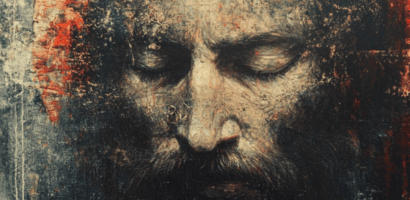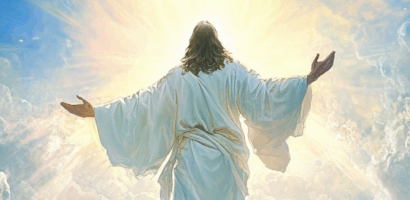Hindsight
The Festival of Purim is over, but the profound message of this prophetic book— Megilat Ester (the book of Esther)—is not over at all, so we will take some time today to continue pondering this message.
Last time, we spoke about the fascinating story of “Purim Fest 1946”. We spoke of “the hidden prophecy” in the original text: of the four letters in the names of the 10 sons of Haman that had been written in a different sized font. In her comment on this post, my dear friend Dot Healy wrote: “I’m intrigued how scribes have placed these diminished and enlarged letters in various places that have been faithfully copied. I wonder if they knew why they were doing it, or were they simply led by the Spirit?” This is a very profound observation, indeed. Think of it: these small letters – tav, shin, zayin – have been there for centuries; they have been copied faithfully by one scribe after another, and these scribes just trusted the Lord and His Word, believing that it was important to preserve the letters as they were handed down to them—that they had some meaning, even if this meaning was not apparent to them at the moment of copying. Yes, as I mentioned, our sages have always pondered these variations in size, and different explanations have been offered—but only after October 1946 did the full meaning become clear, when ten Nazis were hanged in the Jewish year 5707, tavshin zayin.
This is one of the lessons of this great story. We have the benefit of hindsight – and oftentimes it is only in hindsight that we can clearly see God acting in the history of our world, or in our lives. First of all, this means that we don’t need to be discouraged if we don’t experience God’s hand in our lives right now. One day we will look back and clearly see God’s hand in hindsight. The day will come when God will retell to you, your story, and then you will understand all “the hidden prophecies” along the way.
The Hidden Beginning
I will show you one more example of the hindsight – or the hidden beginning – in this book. It is hidden so deeply that it is often overlooked. However, like all the events here, it is also “the revelation of the hidden”; it is also the hindsight, allowing us to see God behind all the events of Purim and to know that He is the One who orchestrated these events.
In 1 Samuel 9, we read: There was a man of Benjamin whose name was Kish… And he had a choice and handsome son whose name was Saul.
Then, in 1 Samuel 15 Samuel also said to Saul…. Now go and attack Amalek, and utterly destroy all that they have, and do not spare them…
And Saul attacked the Amalekites, from Havilah all the way to Shur… But Saul and the people spared Agag and the best of the sheep… and were unwilling to utterly destroy them.
Agag had to be destroyed – and it seems that his destruction was very important in God’s eyes, since Saul was rejected as King right after he had spared Agag.
Now, fast forward to the time of Esther (approximately six centuries later), and once again, you will see how prophetic the book of Esther is.
Esther 3:1 After these things King Ahasuerus promoted Haman, the son of Hammedatha the Agagite…
Esther 2:5 In Shushan the citadel there was a certain Jew whose name was was Mordecai the son of Jair, the son of Shimei, the son of Kish, a Benjamite.
Can you see the story in hindsight here? Saul was commanded to destroy Agag; his failure to do it almost resulted in a slaughter of the Jews by an Agagite six centuries later. Haman was a descendant of Agag; Mordecai was a descendant of Kish and Benjamin; the line of Agag and the line of Kish had to meet again. In fact, the story of Purim began six hundred years before Esther, with Saul and Agag—but this was a hidden beginning. According to Jewish tradition, Mordecai had to destroy Agag’s descendant, Haman, because Saul didn’t destroy Agag. This is just one more profound lesson of this fascinating book.
The Revelation of the Hidden
So, what is so unique about this book? The answer to this question might surprise you at first: The book of Esther is the only book in the Bible that does not explicitly mention God! What?! So why is it in the Bible, anyway? Why was it included in the canon, in the first place?
And here we come to a point of great importance. This book was included in the canon because, in fact, it is all about God. The word “God” doesn’t appear openly in the Book because oftentimes God remains hidden in our lives—until we recognize Him and His handwriting in the circumstances and events that unfold. Yes, it sometimes happens that God’s salvation comes as a miracle, defying natural laws (like in the book of Daniel, for instance). However more often than not, divine salvation is “disguised” in ordinary events – “hidden” in what can be perceived as a series of “coincidences” – as we have uncovered here in the book of Esther. Even the name of this book – Megillat Esther (the Scroll of Esther) – is very profound and reflects this amazing dynamic between hidden and revealed: the name Esther (אסתר) is probably related to the word “nistar”: “hidden”, “concealed”; while the word Megillah might be related to the word “megaleh”: “reveal”. So, even the words “Megillat Esther” can literally be translated as “the Revelation of the Hidden” – and this is the name of this amazing book!
Do you know who else in the Torah had a very similar name? In Gen. 41:45 we read: “Pharaoh then gave Joseph the name Zaphenath-Paneah.” The meaning of this name is not clear, and to this day there has not been an interpretation accepted by all. The ancient Jewish interpretive tradition, however, derives the name Zapheath-Paneah from Hebrew (and not Egyptian) roots:פִּעְנֵחַ צפן (paneah and tsaphan). So what are the meanings of these roots? Tzaphan means to hide, treasure or store up. We find a good example in the well-known words of Ps.119: Thy Word have I hid in mine heart… (In Hebrew, it is:בְּ֭לִבִּי צָפַ֣נְתִּי Belibi tsaphanti…).
Paneach means to decipher; to figure out, solve; decode, interpret. Thus, Zaphenath-Pa’neach, the Egyptian name of Joseph, might be translated as: “He who explains hidden things”—and that really could be the name that Pharaoh would give to Joseph, after-all, he interpreted Pharaoh’s dreams. However, this interpretation has also an additional and deeper meaning. The name might be also translated as “The Revelation of the Hidden” – which would describe very well, not only Pharaoh’s understanding of Joseph, but the entirety of God’s plan with Joseph. This is what the story of Joseph is all about.
The Book of Esther is also about this mystery: the mystery of the God being hidden – disguised – revealed – recognized. In the story of Esther, just as in the story of Joseph, the evil is reversed – and that’s how God reveals Himself in these stories – that is how He is recognized. But first, both Joseph and Esther needed to trust God completely; first they had to understand that their lives were in His hands – and only then, through their lives, in a seemingly “natural” way God intervened and changed history forever.
If you liked this article, you might enjoy also my book As Though Hiding His Face, discussing in depth the issue of the Hidden Messiah. You can get this and my other books through my page on this blog, https://blog.israelbiblicalstudies.com/julia-blum/.)








But Saul did end up killing Agag. And there is no indication that Haman would not have been born if Agag was killed the first time around. In my reading of the text about Agag he was killed fairly shortly after his capture. So the fact that Saul didn’t kill him right away actually has no bearing on the birth of Haman.
Fabulous insights … Thank you and God bless you !
So much food for thought in these revelations! Thank you Julia. God knows the end from the beginning. He knows where disobedience will lead, yet He must allow man’s freewill decisions to take their course… then His grace and mercy intervenes to save His people.
In the years before the Holocaust God raised up men to warn the Jews to leave Germany. Many did – others could not believe that such danger was imminent and were too comfortable in their European lifestyles. Hindsight is a good teacher, but better to hear and heed God’s voice as He leads our lives.
You are so right Dorothy! Of course, it’s better to hear and heed God’s voice in the real time. Unfortunately,not always it happens – as it didn’t happen for those Jews who stayed in Germany – and then it’s important to be able to see and learn the things at least in hindsight.
Julia, you hit this one out of the park again! Fabulous! I like it when you give us the actual Hebrew spelling. It helps us language students practice reading.
Thank you for your generous words, Marcia. I always try to incorporate some Hebrew in my posts, it’s part of my vision. Glad you find it helpful.
Imazing insight. Thank you Julia.